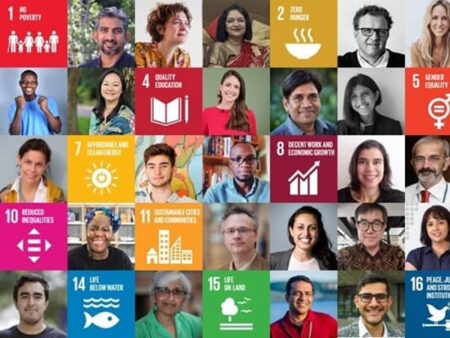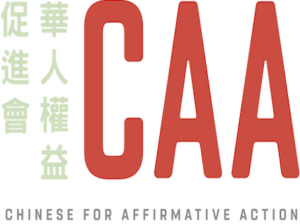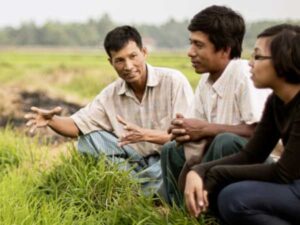
Interview with Cath Thompson (Peace and Security Funders Group (PSFG))
The Peace and Security Funders Group connects and supports the global community of funders advancing peace and security efforts in
Catalyst 2030 facilitates collaborations around the world to work towards achieving the UN Sustainable Development Goals.
Jeroo Billimoria of Catalyst 2030 spoke with Priyanka Shankar on March 9, 2023. Click here to read the full conversation with insights highlighted.
Priyanka Shankar: To start off, could you please introduce yourself, and tell me a bit about your work and the exact problem that your organization is addressing?
Jeroo Billimoria: I’m a social entrepreneur. I am from India, just like you. I live in the Netherlands. The organization I have is One Family Foundation, which incubates new ideas. One of the ideas we are incubating is something called Aselo. I don’t know if you’re interviewing Jim Fruchterman, but we incubated it, and he’s now running it. Another one, which I think Skoll wants me to talk about more, is Catalyst 2030.
Catalyst 2030 is a movement of leading social entrepreneurs and innovators from across the world. It was started in collaboration with Ashoka, Skoll, Schwab, and Echoing Green, the four main [organizations] who work with social entrepreneurs. What we did is we got all of them together and said, you guys have to work together. We want you all to work together, because otherwise we are going to have fragmented events. Now we have around 2,000-plus social entrepreneurs, from almost every country across the world, countries and territories. The main objective of Catalyst 2030 is complex. It’s accelerating the achievement of the [UN Sustainable Development Goals]. That is easy, but we tackle every single SDG and every single target. That’s 198 targets, so it’s really diverse.
The way we work is that we have members who are in different countries, we have around 13 chapters, and they’re growing in different phases. The members meet every month in a general assembly where we spark different projects. So we are doing a lot of work with what we call collaborations. We have 90-plus collaborations which have emerged, and most of them are member-led and they’re on very diverse issues, linked to livelihoods, linked to homelessness, linked to education, linked to TV and media, linked to — you name it. Name an SDG and we have a collaboration. Agriculture, the whole gamut. So you can understand, it’s really, really diverse, and these collaborations are making systems change. Our main focus is changing the system. For example, in education, we are trying to reform education systems in countries, with livelihoods it’s Catalyst Markets. So we have a marketplace and we’re trying to shift the marketplace. So Amazon, Shopify, all of them have products like Catalyst products’ own. Then we have a whole pillar for training. We are shifting the funding system. So it’s huge.
Priyanka Shankar: There are so many inspiring projects that you all are working on to create change. Could you take me through one or two specific projects, and tell me a little bit about the kind of conversations you have and the impact you’re building? How do you measure that impact?
Jeroo Billimoria: The system we are changing is the whole environment. What we are trying to do is give social entrepreneurs a seat at the table, which they have been denied so far. And I think that is the most important thing. One project we are doing, we’re working with the UN and the UNCTAD [United Nations Conference on Trade and Development] to get social entrepreneurs a seat at the table, and they’re going to come up with a social economy resolution in the UN sometime in April. We are working with them so social entrepreneurs can be part of having that resolution go through. That means countries can come to us. We are working with the G20 to do something similar, where social entrepreneurs can be an integral part of the G20 process.
A concrete example is in Malaysia, the government took all the principles we set, and when they shape policies, they always ask the social entrepreneurs. They have a unit for social entrepreneurs. What we do is shift government policy to be able to get social entrepreneurs to work more closely with governments. And through that, creating large-scale impact, because you can have a government policy which is not well-defined, or you can have a government policy which is very well-defined. In many of the countries we have helped define the policies to be able to make it happen. That’s a huge stream of impact, because that’s going to [impact] millions and millions [of people].
Another major stream of impact, if you take one of our projects like Catalyst Markets, which has 150-plus entrepreneurs working together, what those entrepreneurs are doing is trying to change the whole market system. So people are able to buy more ethically, more fair, and more sustainably. Currently, if you want to buy lovely handicrafts, you won’t get it on Amazon or on Shopify. We want to be able to put that at the forefront. We’ve created our own website, you can check it out, Catalyst Markets. By doing that, A, we are getting all the entrepreneurs together. B, we are trying to create common solutions for logistics, storytelling, financing needs, et cetera, so people can really scale. But more importantly, we are going to push the needle. So soon, Shopify, Amazon, eBay, all of them [will] have a special button for socially-sourced goods. That to us is a bigger win than the marketplace itself for us, because then we’re shifting the system in a large way. In addition to that, we have businesses who have to sign the business commitment. They work with social entrepreneurs to make that happen. So we create the whole ecosystem of change and that is what we do very systematically.
Priyanka Shankar: Are there still challenges? Maybe you face deadlocks, or I don’t know if backlash is the right word to use here, but in some countries for social entrepreneurs, it’s still quite hard. So how do you help them meander through this?
Jeroo Billimoria: To be honest, there’s always two steps forward and four steps backward, then two steps forward. That’s what systems change is about. It’s a long-term, difficult, unfunded process. And I’m using the word unfunded very, very, very strongly. But it is the only process which will give us the ability to help the last mile or the first mile, whichever way you choose to [call it], that’s the poorest of the poor. Time and time again, even in Covid it shows, it was the social entrepreneurs who were at the front line. Governments couldn’t reach them. We were the ones who got there.
I think that is something which you need to understand, and I think many governments are getting that. It’s becoming easier to talk to them. Is it a really easy process? No, who are we kidding? One political party may be very pro, another will come into power, they won’t. That’s the two steps forward, the two steps backward. But the more we institute it in the system, which is what we are trying to do through Catalyst, the higher the power of the collective of social entrepreneurs, the better. To be honest, all businesses have trade associations. You have CII, you have FICCI in India. There’s no association for social entrepreneurs. We don’t get that. So now we are creating that, we are there and we call it social innovators more and more.
Priyanka Shankar: How do you measure your impact?
Jeroo Billimoria: Impact is basically being able to move all these systems and policies. I think that’s what the impact is. Catalyst is one of the nine organizations I’ve started. I think if I have to go way back, Childline India, the largest nonprofit in India in partnership with the government, working very closely with the government, and we’ve reached millions of children. It has, I think, one of the highest brand recognitions with the people that matter. So I think we’re able to teach the children and help them. And we’re talking about child laborers. Take Childline India and I took that to 100-plus countries, 160 countries. So just multiply the impact.
Priyanka Shankar: On a more personal level, what inspires you in working on all of these projects? And also, what are the lessons that you are learning from it?
Jeroo Billimoria: It’s my duty. End of story. And what inspires me — I think the people I work with, the change I see. There’s a question I ask myself every night before I go to sleep: have I helped something, someone, in some way? And if the answer is yes, yes. If not, then what do I need to change? So I think it’s very, very simple.
Priyanka Shankar: We spoke about not getting a seat at the table. It must have been also challenging for you when you started off initially.
Jeroo Billimoria: I always take this glass. I say it’s half empty or it’s full. It has tea, and it has ginger, and it has air. I think you can make too much drama about challenges, or you can say it’s an opportunity to bring about change. And that’s how I look at it. I personally believe that there are a lot of very good people in the world wanting to do good, and we need to build on that goodness. That doesn’t mean I don’t get frustrated, irritated, or angry. All those gamut of emotions happen when something you work for for ages doesn’t go through. So please don’t get me wrong. But that’s for the moment, and then there’s the bigger picture. The bigger picture is, there are always a hundred different ways to reach a room. Or better still I say, the Ganga originates in the Himalayas and lands in the Bay of Bengal, and it has many rivers, courses, tributaries, but it gets its way there. It gets very enriched. It nurtures a lot along the way, because you have the fields which get nurtured, it gives food, life, everything.
That’s what social entrepreneurial life is about, right? From one to the other, from here to here you go. And as you try to bring about change, you can make yourself the center of the change. It’s a very important ideological point. You make yourself the center of the change, your ego may get a lot of flattery, but it’s not going to happen. If you realize you are one amongst many trying to bring about change, and sometimes it’s difficult, sometimes it’s easy, then you are able to [create change]. That’s also the ideology for Catalyst. All of us ultimately want the same thing, so I think it’s a big mindset shift, and journalists need to start recognizing that mindset shift. The power of being able to recognize the positive in everybody and bring about the change.
Priyanka Shankar: How do you see yourself growing over the next couple of years? Is it going to be more partnerships, any sort of advanced-level scaling? How do you picture growth?
Jeroo Billimoria: Catalyst is working on a concept called social innovation economy, and we want to make that whole concept mainstream, which is basically putting innovations in the economy, putting communities in the center of decision-making, and bringing about change right from the community level to the global level, and social innovators helping along the way. That’s the large-scale impact. We are working with the UN, G20, all the main development agencies, donors, everybody, they’re trying to make that happen.
Priyanka Shankar: Is there anything else you’d like to add that I haven’t asked you already?
Jeroo Billimoria: Basically in one sentence, catalyst is a part of the collective. That’s what I say we do.
Priyanka Shankar: Thank you so much.
Click here to read the full conversation with insights highlighted.
Priyanka Shankar is an independent journalist currently based in Brussels. She mainly covers stories about human rights, migration and Europe’s relations with Asia. Outside a newsroom you can find her rambling along mountains or scuba diving.
* This interview has been edited and condensed.
Find other organizations working on the United Nations’ SDGs.


The Peace and Security Funders Group connects and supports the global community of funders advancing peace and security efforts in

The Global Fund to Fight AIDS, Tuberculosis and Malaria is an independent, multilateral, financing entity designed to raise significant new

Indus Hospital and Health Network offers free healthcare services to people through a nationwide healthcare network of primary, secondary, and

Organizations across the country are working to address food insecurity among Asian Americans, an issue that was exacerbated by COVID-19

Proximity Designs brings low-cost, high-impact products and services to farmers in Myanmar using human-centered design principles. Debbie Aung Din of Proximity

Heartland Fund addresses the gap in funding for rural areas, particularly BIPOC communities, by connecting rural leaders with funding partners